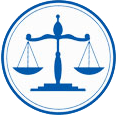S122923
IN THE SUPREME COURT OF CALIFORNIA
En Banc
BILL LOCKYER, as Attorney General, etc., Petitioner,
v.
CITY & COUNTY OF SAN FRANCISCO et al., Respondents.Respondents are ordered to show cause before this court, when the matter is called at the late May 2004 or June 2004 calendar, why a writ of mandate should not issue, directing respondents to apply and abide by the provisions of Family Code sections 300, 301, 308.5, and 355 in the absence of a judicial determination that these statutory provisions are unconstitutional. Pending this court's determination of this matter or further order of this court, respondents are directed to enforce and apply the provisions of Family Code sections 300, 301, 308.5, and 355 without regard to respondents' personal view of the constitutionality of such provisions, and to refrain from issuing marriage licenses or certificates not authorized by such provisions. In addition, pending this court's determination of this matter or further order of this court, all proceedings in Proposition 22 Legal Defense and Education Fund v. City and County of San Francisco et al. (San Francisco Super. Ct. No. CPF-04-503943) and Thomasson et al. v. Newsom et al. (San Francisco Super. Ct. No. CGC-04-428794) are stayed. This stay does not preclude the filing of a separate action in superior court raising a substantive constitutional challenge to the current marriage statutes.
The return in this matter, limited to the legal question whether respondents are exceeding or acting outside the scope of their authority in refusing to enforce the provisions of Family Code sections 300, 301, 308.5, and 355 in the absence of a judicial determination that such provisions are unconstitutional, is to be filed by respondents in the San Francisco Office of the Supreme Court on or before Thursday, March 18, 2004. In addressing the foregoing issue, the return should discuss not only the applicability and effect of article III, section 3.5 of the California Constitution, but any other constitutional or statutory provision or doctrine that may be relevant to the resolution of the foregoing issue.
A reply may be filed by petitioners in the San Francisco Office of the Supreme Court on or before Thursday, March 25, 2004.
Any application to file an amicus curiae brief, accompanied by the proposed brief, may be filed in the San Francisco Office of the Supreme Court on or before Thursday, March 25, 2004.
Any reply to an amicus curiae brief may be filed in the San Francisco Office of the Supreme Court on or before Monday, March 29, 2004.
Votes: George, CJ., Kennard, Baxter, Werdegar, Chin, Brown and Moreno, JJ.
This surprised me at first, but now that I think about it, what the court did was predictable. It skirted the broad constitutional issues, and focussed instead on the narrowest ground available on which to dispose of the case: whether the executive branch (here, the mayor) has the authority to refuse to enforce state laws "in the absence of a judicial determination that such provisions are unconstitutional . . . ." The answer: It does not.
So what will happen now is the City Attorney (or some private group) will file a new case in the Superior Court challenging the constitutionality of the state marriage laws. Meanwhile, no gay couples will get licenses. That is what Mayor Gavin Newsom should have directed the City Attorney to do in the first place. But that wouldn't have gotten Newsom all this national press, now would it?
I work near San Francisco City Hall and have been going over there almost every day to watch the festivities. People were calling it "the happiest place on earth." It really was a joyous, liberating atmosphere, and I'll miss that -- at least for the time being.
